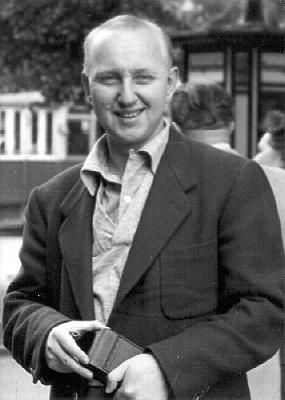|
<< -- 2 -- Ron Bierman TO BE A COMPOSER

But even piano studies, detailed examination of master scores, and four years of
college training in composition weren't enough for him to feel he had command of his
craft. That took nearly five more years with Antheil. Lees speaks of him with obvious
warmth and respect. Antheil didn't think of himself as a teacher, and assisted only the
most promising composers. Lees paid no fee. He says Antheil was repaying Ernest Bloch in
kind. When Antheil earlier in his career was studying with Bloch, Bloch stopped accepting
a fee when he learned, 'George was depriving himself of food in order to pay for his
lessons.'
Lees said of Antheil, 'We had a relationship which was very much like the old
master/apprentice relationship.' Lessons were one to four times a week and lasted one to
three hours. 'Or on a number of occasions on into the dinner hour and I would call my
wife to come over to his house and all of us would have dinner together.'
He taught Lees how to look at his scores, identify weaknesses and tighten structures.
Looking at one of his sonata forms for example, '... he would say, "Dr Antheil spots a
weakness ... The transition from the second statement of the principal subject to the
opening of the second theme isn't strong enough."' And so he taught Lees about transitions
saying, '"Later on, when you are old and hopefully famous, you won't even be thinking
about these things, but they will occur automatically."'

Benjamin Lees in Vienna, 1955
|
In 1953, near the end of his study with George Antheil, Lees' training began to pay
off. He was included in the first list of composers to win a Fromm Music Foundation
Award and the following year saw the first major performance of his work when the NBC
Orchestra played Profiles for Orchestra. Though never among the best known
composers, Lees has since won numerous awards and commissions and his work has been
included in many public performances and recordings. Several of the recordings are recent
and Lees' discussion of them provides general insight into what it takes for a composition
to make it to disk.
That will be the subject of my next report.
Continue >>
| 
